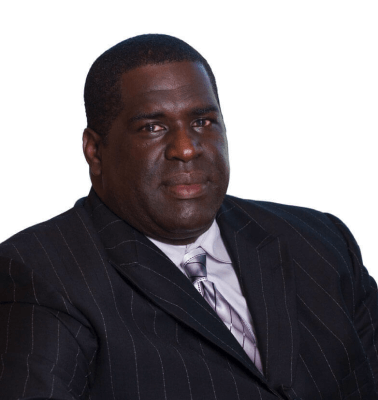Information your DUI attorney will try to obtain
This article lists items your DUI defense lawyer may want to consider obtaining either by independent investigation or by asking the prosecutor for them through formal discovery. These are suggestions only. Your DUI lawyer will have to determine how important each item is for your particular case. There are few, if any, cases in which all of the listed items are necessary.
In deciding what items to gather and how to get them, your DUI attorney will keep in mind that the process of obtaining the material may result in the prosecution garnering the information too. This is especially true if your DUI attorney uses the formal discovery process. Requesting large amounts of discovery may have the adverse effect of causing the prosecution to give your case too much attention.
Breath cases
The following are some items to consider for discovery in a breath case:
- The officer’s training history on the particular machine used to test you. Sometimes officers transition in from other departments and are not trained on the breath machine in the new department.
- The current laboratory license.
- The method the laboratory has adopted or submitted to the state for breath alcohol testing.
- A copy of the manufacturer’s manual for the breath machine used.
- Titration records for the simulator solution.
- Accuracy-check records for two months before and after the date of the test in question. These are sometimes described as calibration check records. They are not, however, records of actually calibrating the machine, they are just a confirmation of the calibration.
- Logs showing how many persons were tested during the period two months before and after you were tested.
Blood and urine cases
The following are some items to consider for discovery in a blood or urine case:
- A portion of the blood or urine sample obtained from you. This is generally referred to as a “split.”
- The methodology used in the analysis (i.e., the operating procedure of the laboratory).
- Any notes the analyst made during the time of his or her analysis (sometimes called “bench notes”).
- The results of the controls used in the run. These are known solutions or blanks that are mixed in the run with actual samples.
- The result of your sample.
- The actual chromatograms of the test of your sample.
- Any testing that was done to ensure that other compounds or volatiles were not mistakenly being analyzed as ethanol (sometimes called “specificity/interference” testing).
- A copy of the “run list.” This list specifies which samples and controls were tested in what order. With automation, a typical run may involve the analysis of 40 different samples.
- The maintenance records pertaining to the particular device used to measure the blood or urine sample for three months before and after your sample was analyzed.
- The chain of custody of your sample.
- A review of the vial your sample was deposited in, or a copy of the information set forth on the vial.
- Records reflecting any proficiency tests given by an independent organization within the last year to the laboratory and the analyst.
- Records reflecting any internal proficiency tests given within the last year to the analyst.
- Any records reflecting any accuracy checks conducted on any vials purchased from a manufacturer.
- The instructions or checklist used by the phlebotomist for the blood draw, or by the person who obtained the urine sample.
Pointing out the analysis is an automated process
If your case comes to trial, it will be important to let jurors know that your sample was analyzed with a largely automated process. Jurors tend to think that the state gave the defendant’s sample individual attention by having a scientist look at the sample through a microscope. Your DUI attorney will need to disabuse them of this notion early. Often, the analyst conducting the analysis is not even in the room at the time of the run. The following sample cross-examination exposes this point:
DUI defense attorney: You did the analysis of the defendant’s blood?
Analyst: Yes, I did it myself.
DUI defense attorney: When you say you did the analysis yourself, you mean that you operated a machine that did the analysis?
Analyst: Yes, I used a gas chromatograph.
DUI defense attorney: Now, when you used this machine did you only analyze the defendant’s blood, or did you analyze other samples during the run?
Analyst: I am sure there were some others.
The witness is unnecessarily trying to minimize the extent of the run. Witnesses get into problems by shading the truth. The witness has learned that the witness can regularly get away with this behavior, because the attorney is frequently not as knowledgeable about the facts as the witness is.
DUI defense attorney: Not just “some others,” weren’t there 40 other “some others” tested?
Analyst: I think so.
DUI defense attorney: And this takes a couple of hours?
Analyst: About that.
DUI defense attorney: And when you yourself are doing these, you are not always in the room the whole time the analysis is being performed are you?
Analyst: Well, not always the whole time, but it is automated.
DUI defense attorney: So your answer is, you are not necessarily even in the room when the blood analysis is being done?
Analyst: Technically, that’s correct.
All cases
The following are some items to consider for discovery in all cases (blood, breath, urine, or refusal):
- The police report.
- The names, addresses, and statements of any witnesses.
- All persons that you were with before, during and after your arrest.
- An inspection of the scene. Going to the scene lets your DUI lawyer get a feel for the whole dynamic in the case. Was the officer’s vision of your driving partially obscured? Is the area where the field sobriety tests conducted level? Is the driving error that led to your initial detention common? Many times, motorists make the same driving error in the same location because of the road design. Perhaps everyone crosses over the line when making the same turn that you did. The argument then is that your driving mistakes had nothing to do with drinking and everything to do with poor road engineering. See Secure the evidence and preserve your shoes!
- Police dispatch tapes.
- Booking photos.
- Mechanical inspection of the vehicle if you believe something was wrong with your car.
- Accident reconstructionist and other accident reports. In serious cases involving major accidents, your DUI lawyer should consult an accident reconstructionist. Obtaining accident reports of other accidents at the same location as yours may help show that it was the roadway, rather than your driving, that contributed to the accident.
- Prior police reports by the arresting officer. Some police officers write the same observations in drunk driving arrest reports for every defendant they have arrested, and this diminishes the credibility of the officer. Even without this kind of prize, your DUI lawyer can learn a lot by reading other police reports by the same officer. For example, the officer may generally ask the suspect how long he or she slept the night before, but did not do so in your case. Your lawyer can point out that the officer obviously thinks this information is significant, but failed to ask for it in your case. Perhaps if the officer had known that you had but four hours sleep, the officer would have had a different view of your field sobriety test performance.
- All exculpatory evidence.
- Your criminal history (“rap sheet”) and the criminal histories of any witnesses.
- Your driving record. Your DUI attorney needs to know your driving history so that the attorney can advise you of the consequences of a possible plea bargain. Being convicted, even of a lesser charge, can result in an accumulation of driving points that may result in a license suspension. Your attorney will need to keep your point count situation in mind during plea discussions. Your DUI attorney may be able to secure an offense that does not have a point count attributed to it for some other concession.













